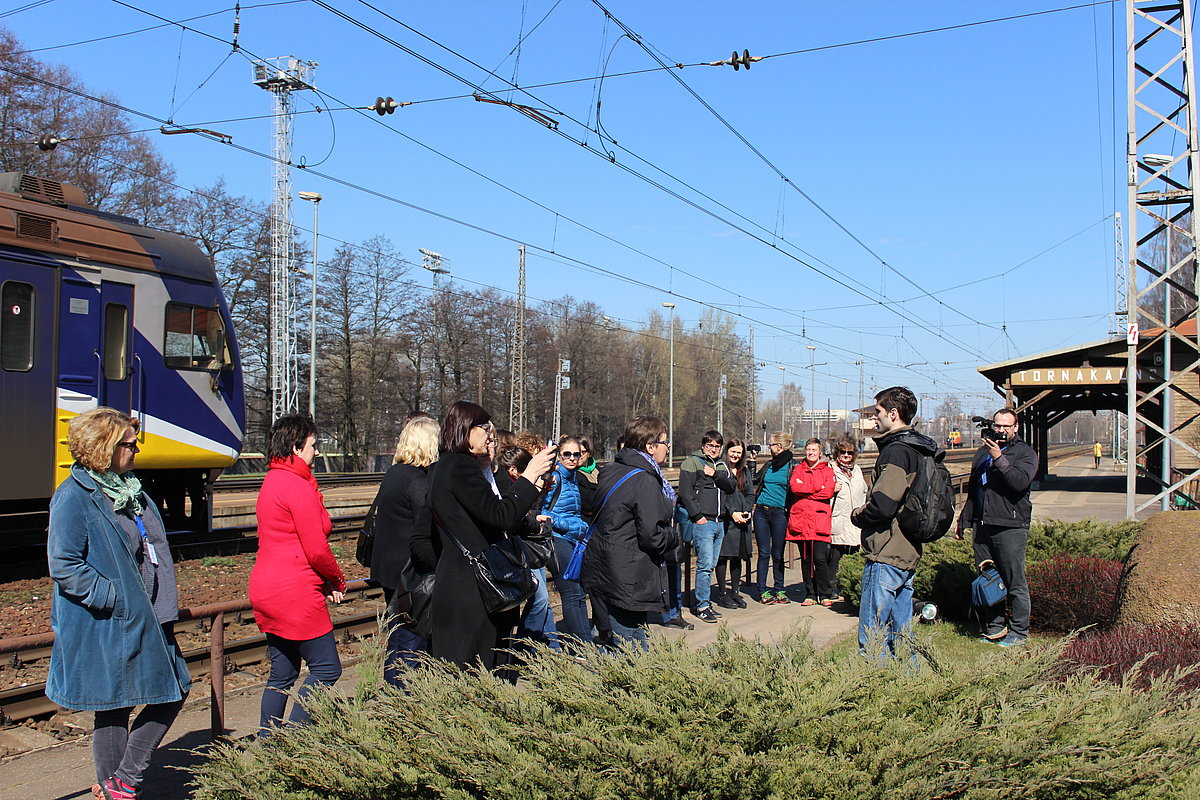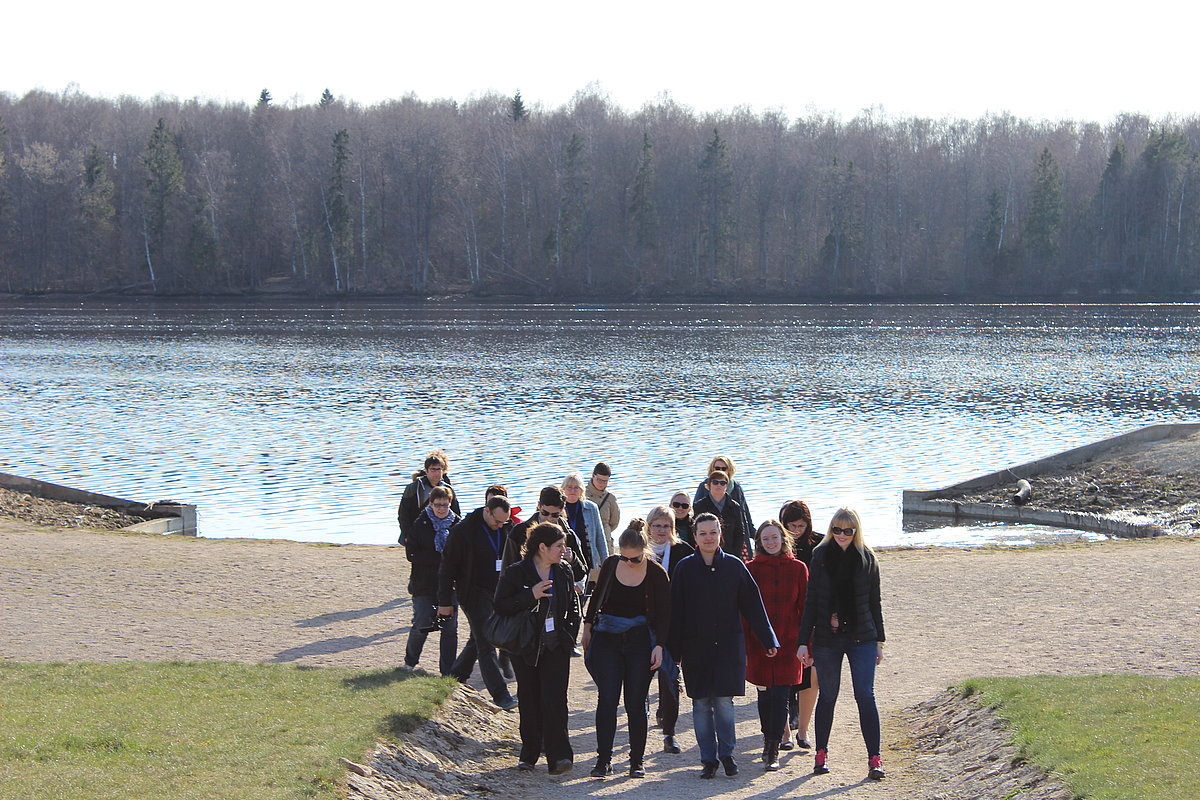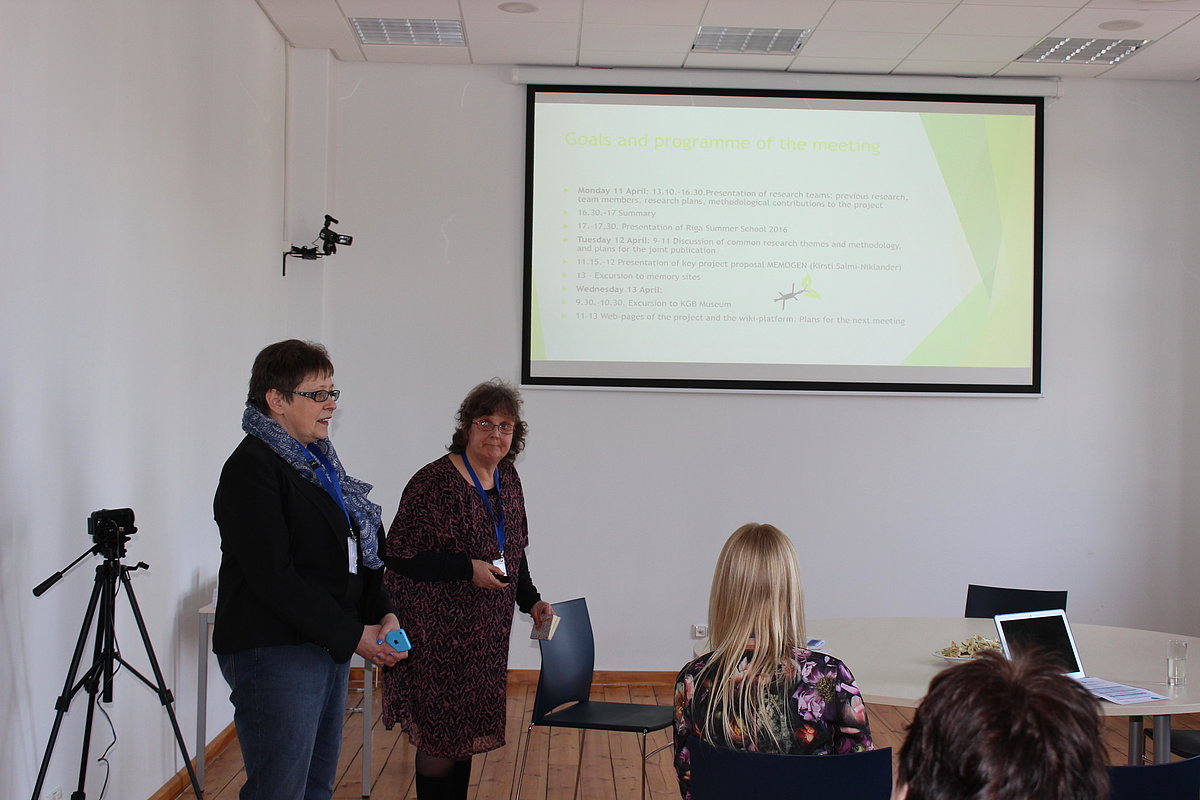
During the seminar days the researchers groups from the represented universities introduced their research conceptions, agreed on the project’s cooperation with the Riga Summer School, where short documentaries dedicated to memory issues will be produced on August this year, as well as on the development of collective monograph and on methodological approaches to memory research. The monograph, that will be published by international academic publisher, will consist of about 15 articles. Within the monograph researchers are going to analyze four themes concerning difficult memories: (1) tools for reconciliation, dialogue, commemoration, (2) processes of engagement and disengagement, (3) memory work: public, semi-public and private, (4) silence, stigma and trauma. Research groups will present and discuss their interim results on the second workshop of partners of international project "LIVINGMEMORIES" in Istanbul early next year.
On the second day of the workshop participants went on an excursion to visit the significant memorials for the social memory and identity of Latvia. Researchers group of the University of Latvia explained to their guests the controversial meaning of the memorial to the victory of the Soviet Union in the Great Patriotic War, as well as tragic narratives that are carried by the monuments dedicated to the victims of the Soviet deportations in Torņkalns and to the victims of holocaust in Rumbula and the memorial of Salaspils that was established in the place of a Nazi concentration camp. By contrast, the Garden of Destiny signifies healing for the past traumas. Researchers evaluated this memorial positively as new form of creating sites of memory based on people's participation and donations. Tuesday’s excursion ended in the Riga Brethren Military Cemetery observing the illuminated image of Mother Latvia at night. On Wednesday, the guests had an opportunity to visit the KGB Museum and the archive of audio-visual collections in the Museum of the Occupation of Latvia that keeps more than 2,000 testimonies of oral history of Latvian nation’s destiny. Lelde Neimane, curator of the Audio-Visual Collections pointed out that harsh stories, for instance, about the deportation to Siberia, “are like stories of strength and reminders to appreciate what we have in our lives and how happy we are nowadays!"
The leader of the University of Helsinki research group Dr. phil. Kirsti Salmi-Niklander expressed her thoughts after the excursion: "It was very interesting and touching to visit all those places of commemoration. History of Latvian nation of the past 100 years has been very tragic, so it is very good that different memorial sites are being maintained and honored. Remembering and sharing the memories can be very healing!” Participants acknowledged that the workshop held in the University of Latvia was very valuable and well-organized. Researchers had a chance to get acquainted with each other, to plan the cooperation and to learn a lot about Latvia.
Project “LIVINGMEMORIES” is the first social science and humanities project that is implemented in the program ERA.NET RUS PLUS. It is European Union’s 7th Framework Program, which focuses on the promotion of European Union member state scientific cooperation with Russian scientists. At the University of Latvia the project is implemented by the Social Memory Research Centre – interdisciplinary research unit of the Advanced Social and Political Research Institute of the Faculty of Social Sciences. The leader of the University of Latvia group is Professor, Dr. hist. Vita Zelče. Researchers involved in the working group are Dr. sc. comm. Laura Ardava, Dr. sc. comm. Didzis Bērziņš, Dr. soc. sc. Jurijs Ņikišins and Dr. art. Zane Radzobe, Mg. soc. sc. Sanita Burķīte and Mg. soc. sc. Aija Rozenšteine.

 CONFERENCE
CONFERENCE
